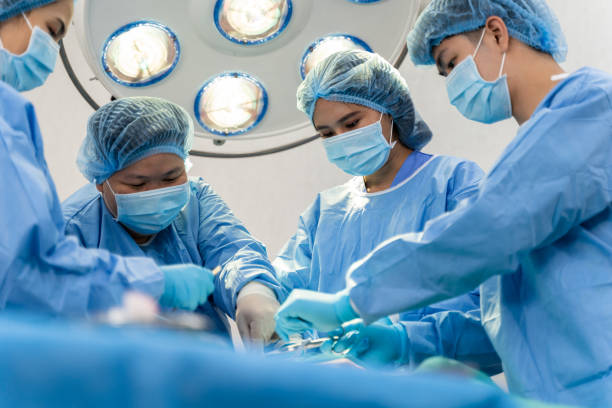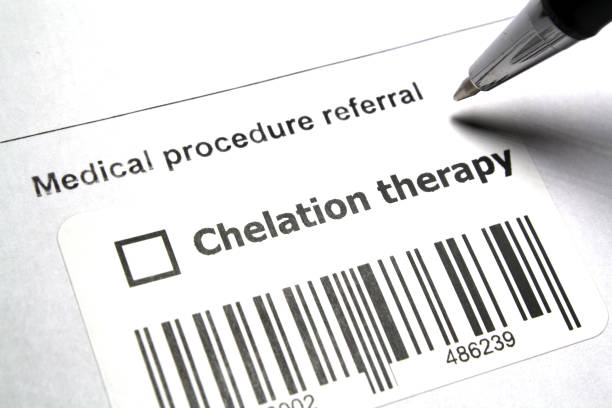Colon cleansing involves flushing out the large intestine (colon), often done before certain medical procedures like a colonoscopy. It’s also sought by some individuals dealing with issues like fecal incontinence or chronic constipation to achieve regular bowel movements. While historically rooted in ancient Greece, colon cleansing gained popularity in the U.S. during the early 1900s but later fell out of favor due to a lack of support for its theories. Recently, interest has been resurgent, with various methods like laxatives, teas, powders, capsules, or colon irrigation gaining popularity.
The question remains: Is colon cleansing beneficial for your health? Unfortunately, scientific research on colon cleansing is limited, and many claims made by practitioners lack solid evidence. Additionally, the associated side effects can range from mild to severe.
How to cleanse your colon
There are two primary ways to cleanse your colon: at-home methods using products or seeking assistance from a colon hygienist or hydrotherapist who uses a colon hydrotherapy machine.
- Colon Cleanse with Supplements:
- You can purchase powdered or liquid supplements for colon cleansing, either taken orally or through the rectum.
- These products, including enemas, laxatives (both stimulant and nonstimulant types), herbal teas, enzymes, and magnesium, aim to assist the colon in expelling its contents.
- These supplements are available online, in health food stores, supermarkets, or pharmacies.
- Colon Cleanse with Colon Irrigation (High Colonics):
- Colon irrigations, performed by colonic hygienists or colon hydrotherapists, involve using a colon hydrotherapy machine.
- The machine works somewhat like an enema but uses significantly more water, often up to 16 gallons.
- While lying on a table, a low-pressure pump or gravity-based reservoir flushes water through a tube inserted into the rectum.
- After the water enters the colon, the therapist may massage your abdomen, and you release the water, similar to a regular bowel movement, flushing out fluids and waste.
- Sessions may last up to an hour, and practitioners may vary water pressures and temperatures, sometimes combining water with enzymes, herbs, coffee, or probiotics (beneficial bacteria supplements).
Both methods have been practiced for around a century, with at-home supplements readily available and colon irrigations performed by professionals using advanced equipment and techniques.
How does colon cleanse work?
Colon cleansing is often associated with detoxification, rooted in the ancient belief of autointoxication. This theory suggests that undigested foods produce toxins, which then enter the bloodstream, leading to chronic health issues. Some claim that these toxins are responsible for a range of symptoms such as fatigue, headaches, weight gain, low energy, arthritis, high blood pressure, and skin problems.
While the notion of toxins being reabsorbed seems plausible, the theory of autointoxication was debunked in the early 1900s. Subsequent research on the detox effects of colon cleansing has been limited and faced criticism for factors like small sample sizes, lack of peer review, and poor study designs. These limitations make it challenging for doctors to consider colon cleansing as having solid scientific support for detoxification. Therefore, the concept of using colon cleansing for detox lacks robust scientific backing according to current medical understanding.
Advantages of Colon Cleansing
Companies selling colon cleansing products and practitioners offering colon irrigation promote a wide range of health benefits. Their primary aim is to clear the colon of accumulated waste that is believed to be harmful and stuck to the colon walls. According to them, this process can enhance the overall functioning of your body.
Supporters of colon cleansing suggest the following advantages:
- Detoxification: Getting rid of harmful substances.
- Increased Energy: Feeling more energetic.
- Enhanced Immune System: Improvement in the body’s defense mechanism.
- Weight Loss: Shedding excess weight.
- Reduced Headaches: Experiencing fewer headaches.
- Promotion of General Well-being: Contributing to good health overall.
- Lowered Risk of Colon Cancer: Decreasing the likelihood of colon cancer.
It’s important to note that there isn’t substantial scientific evidence supporting these assertions.
Is Colon Cleansing Essential?
Your body has a natural way of staying healthy through regular bowel movements, which eliminate food waste and toxins. This process also plays a crucial role in maintaining a healthy balance of gut bacteria.
The bacteria in your gut, known as the microbiome, are vital for the proper functioning of your immune system. They act as a defense against harmful bacteria that could cause infections. Additionally, a healthy microbiome may contribute to reducing the risk of colon cancer.
Colon cleansing, however, disrupts this balance by eliminating the bacteria that play a role in keeping you healthy. In essence, your body’s natural processes, including regular bowel movements, are generally sufficient to maintain your health without the need for additional interventions like colon cleansing.
How safe is Colon Cleansing
Colon cleansing raises some concerns for several reasons. The products available for purchase as colon cleanse supplements are considered dietary supplements by the FDA, which means they are not regulated or approved. Some companies selling these products have faced action from the FDA and FTC due to the inclusion of illegal and potentially harmful ingredients. False claims about treating serious diseases have also been a part of the issue.
Machines used for colon irrigation are not approved by the FDA for colon cleansing. Warning letters were issued to manufacturers in the early 2000s, highlighting their nonmedical use during colon cleansing.
Practitioners of colon cleansing do not hold licenses from scientific or medical authorities. Although they undergo training, their certification does not come from a medical board. This lack of oversight by an independent group raises concerns about the necessity, safety, and consistency of procedures among practitioners.
Doctors advise caution with colon cleansing, especially for individuals with a history of gastrointestinal diseases (like diverticulitis or inflammatory bowel conditions), previous colon surgery, severe hemorrhoids, kidney disease, or heart disease. These conditions increase the risk of side effects. Consulting with your doctor before considering colon cleansing is recommended to ensure it is safe and suitable for your specific health circumstances.
Potential Side Effects of Colon Cleansing
Engaging in colon cleansing carries potential risks and side effects, including:
- Cramping: Abdominal discomfort.
- Bloating: Feeling of fullness and swelling in the abdomen.
- Diarrhea: Frequent, loose bowel movements.
- Vomiting and Nausea: Throwing up and feeling queasy.
- Irritation in the Skin around the Anus: Discomfort or redness in the anal area.
- Soreness: Discomfort or pain.
- Dehydration or Dizziness: Signs of insufficient fluid intake.
- Electrolyte Imbalance: Particularly risky for individuals with kidney or heart issues.
- Bacterial Imbalance and Infection: Disruption of healthy gut bacteria leading to infections.
- Potential Interference with Medication Absorption: Impacting the effectiveness of medications taken on the day of colon cleansing.
- Bowel Perforation: A tear or hole in the intestinal wall.
- Infection: Introduction of harmful microorganisms.
- Kidney Failure: Especially dangerous for individuals with pre-existing kidney conditions.
It’s crucial to be aware of these potential side effects and consult with a healthcare professional before undergoing colon cleansing, particularly if you have any underlying health concerns.
Warning: Additional Risks and Complications
Exercise caution during colon irrigation, especially if you add substances to the water, as this introduces the risk of allergic reactions. Herbal colon-cleansing products have caused serious health issues, including aplastic anemia (a condition where the bone marrow stops producing blood cells) and liver toxicity.
In certain instances following colon hydrotherapy, healthcare professionals have reported:
- Back and Pelvic Abscess: Formation of pockets of pus.
- Gas Accumulation in the Veins: Unusual buildup of gas in the bloodstream.
- Rectal Tears: Tears or injuries in the rectal area.
- Gangrene in the Perineum: Tissue death in the patch of skin between the genitals and anus.
- Water Intoxication: Excessive intake of water leading to electrolyte imbalance.
- Swelling of the Colon and Blood Poisoning: Associated with coffee enemas.
- Death from Amebiasis: A disease caused by the parasite Entameoba histolytica.
These complications highlight the importance of informed decision-making and consultation with healthcare professionals before considering colon-cleansing procedures. The risks involved, including potential allergic reactions and severe medical conditions, should not be underestimated.
Ways to Boost Colon Health
If you’re facing tummy troubles like constipation, here’s some simple advice from doctors to perk up your colon health:
- Stay Hydrated: Drink enough water to keep things moving smoothly in your digestive system. Aim for 12-16 cups daily, adjusting based on your weight and activity level. Good hydration means rare thirst and light yellow pee.
- Keep Moving: Exercise helps things zip through your digestive system, potentially lowering your risk of exposure to harmful substances in your food. Follow the U.S. Department of Health and Human Service’s guidelines for 150-300 minutes of moderate-intensity or 75-150 minutes of vigorous-intensity exercise weekly.
- Go Plant-Based: Build your diet around plants—vegetables, whole grains, fruits, and beans. This ensures a good fiber intake, vital for preventing various gut issues like constipation, diverticular disease, and colorectal cancer. Most Americans get around 15 grams of fiber daily, but you should aim for 25-30 grams. Add both soluble and insoluble fiber sources, like oats and whole grains.
- Embrace Resistant Starches: Include more resistant starches in your meals. These carbs ferment in the large intestine, feeding good bacteria, without undergoing digestion in the small intestine. Resistant starches can help prevent constipation and reduce the risk of colon cancer. Find them in foods like plantains, green bananas, beans, peas, lentils, whole grains, and cooled rice.
- Probiotic Power: Incorporate more probiotic foods into your diet. These are foods containing beneficial bacteria and yeasts that maintain a healthy balance in your microbiome. Look for options like yogurt, kefir, cottage cheese, miso soup, kombucha, sauerkraut, kimchi, pickles, and pickle juice. If these aren’t your favorites, consider probiotic supplements, like acidophilus, which supports various parts of your body, from your gut to your urinary tract.
- Toxin-Free Lifestyle: Steer clear of toxins by avoiding tobacco, alcohol, and processed meats such as bacon, sausage, deli meats, and hot dogs. Additionally, limit your consumption of beef, pork, and lamb to no more than 18 ounces per week to minimize the risk of colon cancer.
- Early Screening: Initiate colon cancer testing at age 45 or as advised by your doctor. Early detection can significantly improve outcomes.
- Healthy Weight: Maintain a healthy weight by focusing on reducing body fat. Higher body fat percentages elevate your risk for colon cancer.
- Herbal Tea Bonus: Consider incorporating herbal tea into your routine. A 2014 study suggested that drinking 1 or more cups of herbal tea per week may lower the risk of cancer in the distal colon. However, it’s unclear if it’s the herbal tea itself or the healthier habits of tea drinkers that contribute to the reduced risk.
- By taking these proactive steps, you can contribute to the well-being of your colon and overall digestive health.
Improving your colon health can be as straightforward as staying hydrated, staying active, and incorporating plant-based, fiber-rich foods into your diet.

